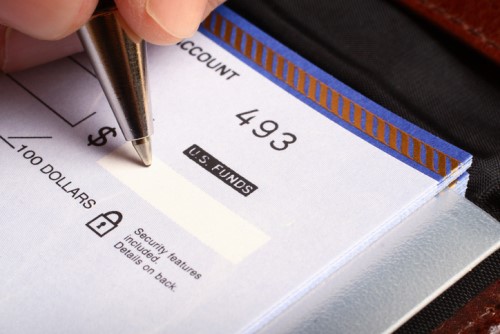Majority of respondents have little to no choice but to spend it on food to get through the COVID-19 outbreak

As the first batch of taxpayers wait for their stimulus checks to arrive in the coming weeks, more than a quarter of Americans have decided to spend their relief money on rent or mortgage.
Eligible Americans can receive a one-time $1,200 payment from the federal government as part of a $2 trillion relief package intended to help counter the negative financial and economic impacts of coronavirus.
But even with the government relief package, most low-income households are forced to pick between paying rent and putting food on the table. MagnifyMoney's latest survey findings revealed that food and bills are on top of the lists of almost half of more than 1,000 respondents, with 44.5% making groceries a priority and 42.6% adding bills.
Among the majority who see the stimulus as a necessity, 28.5% of respondents plan to pay their rent and mortgages using the money. Others said they would put some (26%) or all of it (17.6%) in savings, pay credit card debt (15.2%), or other debt (7%). Around 6.2% of respondents were unsure of what to do with their stimulus check.
Meanwhile, those who don't necessarily need the money are thinking of donating some (4.3%) or all of it (2.3%) to charity, pay off student debt (3.6%), splurge (4%), and going on a post-pandemic vacation (2.2%).
LendingTree Chief Credit Analyst Matt Schulz emphasized the importance of carefully planning how people should use their stimulus checks.
"If you can put some of the check away to start an emergency fund or build up your current one, that's probably ideal," Schulz said. "That's not the reality for millions of Americans, though. For many, this will be about keeping the lights on or putting food on the table. That's why these checks are so, so important."
For those who want to use their checks to get rid of debt, Schulz stressed the value of an emergency fund as well.
“It's obviously great to pay down debt, but far too often, people pay off debt and have no savings at all," he said. "That means that if an unexpected expense comes up, that cost goes right back on the credit card, and the person is right back in debt. Having even a little bit of cash in savings can help avoid that situation."
For those who are on sound financial footing, Schulz points out that "growing your rainy-day fund, paying off credit card debt, bulking up your retirement savings, and supporting your community by spending on small businesses or nonprofits" are a few smart ways to use that money.



